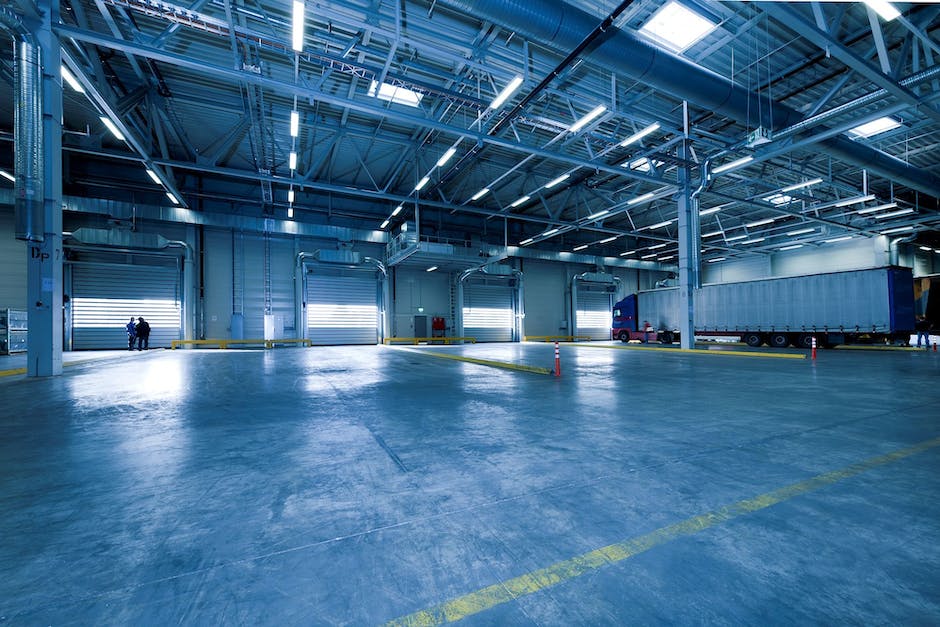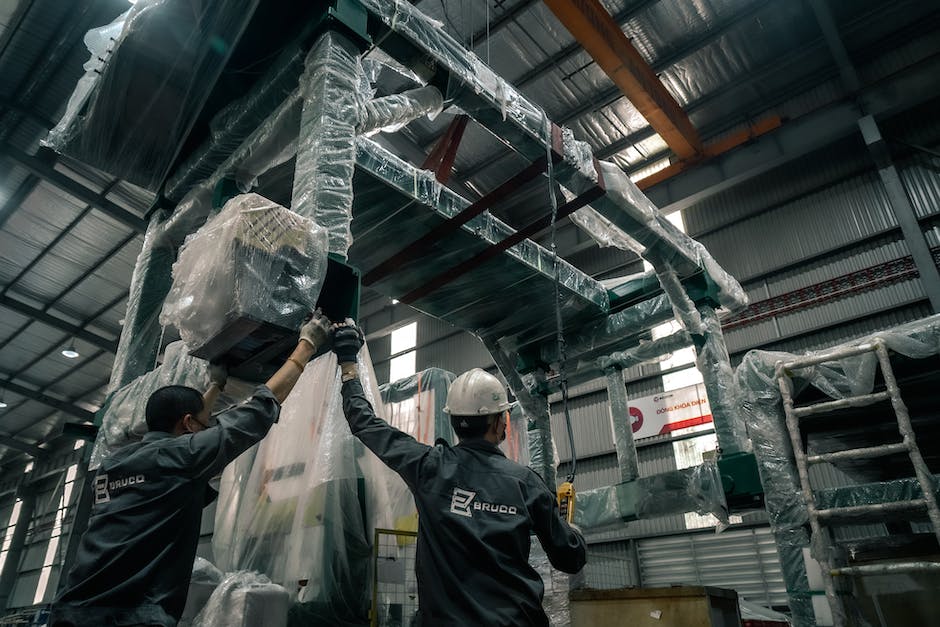The warehouse industry serves as a linchpin in the intricate network of global supply chains. Paramount to the successful operation of these warehouses are warehouse supervisors, holding pivotal roles that ensure the efficient and safe operation of these facilities. In the ensuing discussion, we aim to unlock a comprehensive understanding of the warehouse supervisor’s role, responsibilities, required skill set, and qualifications. By exploring the challenges they face, and the real-world solutions that are proposed to tackle these, we hope to shed light on the intricacies of warehouse supervision. Further, we delve into the exciting realm of modern technology and its impact on the warehouse industry, leading us finally to an exploration of career growth and future prospects for those embarking on a career in warehouse supervision.
The Role and Responsibilities of a Warehouse Supervisor
Roles and Responsibilities of Warehouse Supervisors
A warehouse supervisor’s primary duty is to oversee the daily activities within a warehouse. In this role, they are responsible for managing a team of employees, which includes training new staff members, monitoring their performance, resolving disputes, and conducting performance evaluations.
As part of their management responsibilities, warehouse supervisors also ensure that their team operates in an efficient and effective manner. This includes supervising pickups and deliveries, organizing stock in the warehouse, and making sure that storage systems are working effectively.
One of the significant duties of a warehouse supervisor is managing inventory. They are responsible for keeping an accurate count of all stock and for maintaining records. They usually use automated computer systems to streamline the inventory process and reduce the risk of errors.
Additionally, warehouse supervisors are tasked with the crucial duty of ensuring that safety regulations and standards are adhered to at all times. This involves keeping the warehouse environment clean and organized, maintaining and inspecting equipment regularly for safety purposes, and training staff on safety best practices.
Warehouse supervisors are also in charge of liaising with other departments to facilitate smooth operations. This involves coordinating with the shipping department to schedule pickups and deliveries, working with customer service to resolve order issues, and collaborating with the purchasing department to monitor stock levels and ensure that inventory is replenished in a timely manner.
Warehouse Supervisors and Quality Control
Warehouse supervisors play a critical role in maintaining quality control in their facilities. They monitor the condition of goods stored in the warehouse, ensuring that they’re stored properly to prevent damage or spoilage. They also ensure that outgoing deliveries are accurate and meet the required standards.
In addition, they handle customer complaints relating to product quality. They must investigate these complaints, identify the root cause, and implement corrective measures to prevent similar issues from recurring.
Leadership Skills and Problem-Solving Capabilities
To be effective in their role, warehouse supervisors need to possess strong leadership skills. They should be able to inspire and motivate their team to meet individual and collective targets. They should also be equipped with excellent problem-solving skills to devise solutions to any issues that may arise in the warehouse.
Moreover, being a warehouse supervisor demands high levels of physical stamina and strength, as it often involves lifting heavy items, climbing ladders, or crouching to access low shelves. Having technical know-how of the various warehousing equipment and systems is also a key requirement for this role.
Understanding the Role of a Warehouse Supervisor
Providing a backbone to a company’s operations, warehouse supervisors are integral in ensuring a smooth and effective warehouse management. Their role encapsulates the correct storage of goods, efficient and safe staff performance, and the timely delivery of the right products to the appropriate customers. By doing so, they significantly enhance customer satisfaction and positively impact the financial success of the organization.

Skill Set and Qualification Requirements
Essential Skills and Qualifications for Being a Warehouse Supervisor
Moving a step further, it’s important to unravel the abilities and qualifications that make a capable and effective warehouse supervisor. Their role, crucial to the logistics and supply chain industry, demands exceptional leadership, meticulous organization abilities, safety and procedural knowledge, and a command over relevant technical skills.
Leadership Capacities
The ability to lead is essential as warehouse supervisors are tasked with managing teams of employees, ensuring that tasks are equitably divided and completed accurately within the given timeframe. Not only do they need to delegate work effectively but also oversee team dynamics, motivate employees, and guarantee that all staff have a clear understanding of their roles and responsibilities.
Proficiency in Organization
In addition, organizational skills top the list of necessary assets for warehouse supervisors. They are the ones to make sure that goods are stored systematically, to expedite retrieval and stock management. They are tasked with understanding what items are in inventory, their locations, and how to utilize the available space in the best manner. Consequently, they need to be well-equipped with warehouse operations and layout strategies, as planning warehouse layout also comes under their purview.
Familiarity with Safety and Technology
Safety knowledge is non-negotiable for a competent warehouse supervisor. Considering the inherent safety hazards in a warehouse environment, they must be well-versed in safety legislation and procedures and ensure that these guidelines are stringently adhered to.
On the technological front, the modern warehouse supervisor must be comfortable with warehouse management systems (WMS) and other inventory management software. They may also be required to be familiar with barcode scanners, forklift operation, and radio-frequency identification (RFID).
Value of Education, Training, and Certification
While the position of a warehouse supervisor might be attained through on-site experience, a formal education certainly adds value. A bachelor’s or associate degree in fields like logistics, supply chain management, business administration, or a related field can prove beneficial. Certifications like Certified Professional in Supply Management (CPSM), Certified Supply Chain Professional (CSCP), and Certified in Production and Inventory Management (CPIM) can boost career prospects.
Keeping up with industry changes through continuous professional development and training can ensure that warehouse supervisors remain current and competent in their roles.
Final Thoughts
In summary, being a warehouse supervisor calls for a varied and expansive skill set. From leadership and organizational abilities to safety and technological knowledge, every skill contributes to the effective and successful running of a warehouse. With appropriate training, education, and certification, one can further enhance their capability and pursue a thriving career in warehouse supervision.

Challenges and Solutions in Warehouse Supervision
Overcoming Challenges as a Warehouse Supervisor
In the practical operations of the warehouse, however, supervisors have to navigate through a plethora of challenges. From dealing with personnel issues and ensuring constant efficiency, to remaining compliant with evolving safety measures, supervisors face a unique mix of problems. These challenges call for practical and innovative solutions that warehouse supervisors are often expected to deliver.
Personnel Issues
One of the critical challenges that warehouse supervisors grapple with is personnel issues. This could range from lack of discipline, absenteeism, poor performance, to interpersonal conflicts among workers. Supervisors often have to deal with these issues delicately to ensure an amicable working environment. They achieve this by implementing clear communication channels, setting clear goals and expectations, promoting an open-door policy, and fostering a culture of respect. Additionally, supervisors must also deal with training new staff members, which requires patience, dedication, and the ability to effectively transfer knowledge and skills.
Maintaining Efficiency and Productivity
Achieving operational efficiency and high productivity is another key challenge for warehouse supervisors. Supervisors are always under pressure to increase output, improve service levels, reduce errors, and decrease operational costs. Therefore, they constantly have to monitor and evaluate operational processes, identify bottlenecks, and devise strategies to increase efficiency. This may include implementing innovative technologies such as warehouse management systems (WMS), automated guided vehicles (AGVs), and other material handling equipment that streamline processes.
Compliance with Safety Standards
Another important responsibility of warehouse supervisors is ensuring adherence to safety regulations. With safety standards constantly evolving, supervisors have to stay up-to-date with these policies and ensure every staff member complies to avoid accidents and litigation. This involves providing regular safety training, thorough inspections, and enforcing a safety-first culture amongst the workers.
Real-World Solutions and Best Practices
The mentioned obstacles require effective strategies to be surmounted. For personnel issues, real-world solutions involve promoting open and honest communication, setting clear expectations, and providing regular constructive feedback. For maintaining efficiency, analysis of work processes for any inefficiencies and implementation of advanced technology have proven to be effective. Regular safety trainings, timely inspections and immediate corrective actions form the best practice for compliance with safety standards.
In conclusion, it’s undisputed that warehouse supervisors face a plethora of challenges in their day-to-day operations. However, with the right techniques and adherence to proven best practices, surmounting these obstacles is feasible. The keys to successful warehouse supervision lie in efficient personnel management, comprehensive safety compliance and the ability to adapt to evolving trends including automation.

The Impact of Technology on Warehouse Supervision
Embracing Automation in Warehousing
Notably, automation has gradually become a pivotal tool in warehouse operations as it significantly alters the roles and responsibilities of supervisors. This technological innovation has facilitated the introduction of gadgets such as robots, automated guided vehicles (AGVs), and automated storage and retrieval systems (AS/RS), all of which have fundamentally transformed the warehousing industry.
The value of automation in a supervisor’s arsenal is numerous. It allows warehouse supervisors to significantly minimize manual labor, resulting in fewer employee errors and increased inventory precision. Moreover, it enhances warehouse efficiency and safety as machines are better equipped to handle high-risk tasks.
Despite the numerous benefits, progressing towards automation comes with its set of challenges. Supervisors are now tasked with acquiring new skills to oversee these automated systems properly. Additionally, the high initial cost of implementing these technologies may pose financial constraints for some businesses. The role of automation in potential job losses also raises a significant concern, as machines could replace human labor.
Warehouse Management Systems
Warehouse Management Systems (WMS) are another critical aspect of modern technology impacting warehouse supervision. These systems provide warehouse supervisors with an overarching view of warehouse operations, from inventory management to order fulfillment.
The use of a WMS can lead to increased efficiency and reduced costs for warehouse operations. They offer real-time inventory updates, allowing for more precise inventory control, less overstocking, and increased order accuracy, helping the overall business performance.
But implementing a WMS can bring challenges. Training staff on these new systems can be time-consuming and may cause temporary disruptions in operations. Additionally, not all WMS are one-size-fits-all. Each business may have specific needs that require custom-tailored software, adding to the overall cost and complexity.
The Impact of E-Commerce
The rapid growth of e-commerce has also significantly affected warehouse supervision. The high demand for faster delivery times and increased order volumes has necessitated a shift from traditional warehouse operations to more technologically complex systems.
E-commerce has driven a change in the needs and urgency associated with warehousing. Warehouse supervisors now must manage operations capable of processing high volumes of smaller, individual orders, rather than larger, bulk orders for brick-and-mortar shops.
Although this shift brings its challenges, it also presents opportunities for further technological advancements. In response, new systems have been developed to optimize pick-and-pack processes, manage returns, and handle demand fluctuations-all of which are crucial aspects of e-commerce fulfillment.
The constant evolution in the warehouse industry due to technological innovations presents both challenges and opportunities for warehouse supervisors. New skills and techniques are required for handling the new technologies, but they also open doors for process optimization, improved accuracies, and safer practices. While the transformations may seem like potential hurdles, they are indeed adding powerful dimensions to the arena of warehouse supervision. Staying in line with these advancements is crucial to stay ahead in this competitive field.

Career Growth and Future Prospects in Warehouse Supervision
Opportunities for Career Progression
Warehouse supervisors occupy a key role in logistics and supply chain management. With increasing responsibilities and experience in this domain, countless career advancement opportunities open up. These professionals could elevate their careers to managerial roles such as warehouse managers, operations managers, or logistics managers. Stepping up to these roles would demand a wider understanding of the supply chain mechanisms, abilities to strategize effectively, and improvement in managerial competencies.
Growing Industry Demand
The demand for warehouse supervisors is expected to continue growing due to the rise in e-commerce, globalization, and the overall expansion of companies. The Bureau of Labor Statistics (BLS) anticipates that jobs in the storage and distribution sectors, including those of warehouse supervisors, are expected to grow faster than the average for all occupations. This industry growth establishes a steady demand for warehouse supervisors, providing job stability and potential salary increases in the future.
Future Adaptation of the Role
As technology continues to advance, the role of a warehouse supervisor will similarly evolve. Future warehouse supervisors may need to become adept at using new technologies such as artificial intelligence, robotics, and advanced warehousing systems. The integration of these technologies in warehouse operations can increase efficiency and reduce errors, but might also require supervisors to undergo continual training and upskilling in these areas.
Advice for Aspiring Warehouse Supervisors
Individuals considering a career in warehouse supervision should equip themselves with well-rounded knowledge in logistics and supply chain management. A degree in supply chain management, logistics, or a related field can be beneficial, but experience in any warehousing or distribution role can also lead to a supervisor position. Key skills that are useful include leadership, organization, problem-solving, and communication.
Moreover, getting certified by accredited supply chain institutions, such as the Association for Supply Chain Management (ASCM) or the International Warehouse Logistics Association (IWLA), can also enhance a resume. Staying updated with technological advancements in the industry and being ready to adapt to these changes will also be beneficial to maintaining a competitive edge in the field. Lastly, building strong interpersonal and team management skills can set up aspiring warehouse supervisors for success, as the role often entails interacting with various teams and handling personnel-related responsibilities.
Beginning a Career in Warehouse Supervision
For those beginning a career in warehouse supervision, it is essential to understand the operational aspects of a warehouse. This includes knowledge of inventory control, warehouse safety protocols, shipping and receiving procedures, and the use of warehouse management systems. Some employers may offer on-the-job training to help new supervisors understand the specific needs of their warehouse. Additionally, collaborating with more experienced supervisors or seeking mentorship can provide practical insights into dealing with the daily challenges of the role.
Early in one’s career, it might be beneficial to handle diverse tasks to gain a broad understanding of the warehouse systems, which can provide a solid foundation for decision-making and problem-solving as a supervisor. Participating in industry workshops and seminars, and subscribing to industry publications can keep you abreast of the latest trends, technologies, and best practices in warehouse management.

Having traversed the broad terrain of warehouse supervision, it is evident that the field is both dynamic and demanding. It requires a blend of tactical skills, a comprehensive understanding of safety and regulatory standards, with a layer of technical savviness to adapt to the evolving technological landscape. However, for those with the right skill set and career focus, it offers a wealth of opportunities for growth and advancement. As the role continues to evolve, promising future prospects await those who can deftly navigate the demanding and rapidly evolving world of warehouse management. Therefore, becoming a warehouse supervisor can be a rewarding career choice, serving as a crucial cog in the dynamic apparatus of global trade and distribution.

